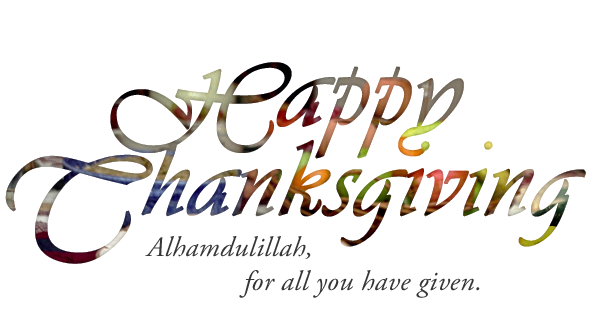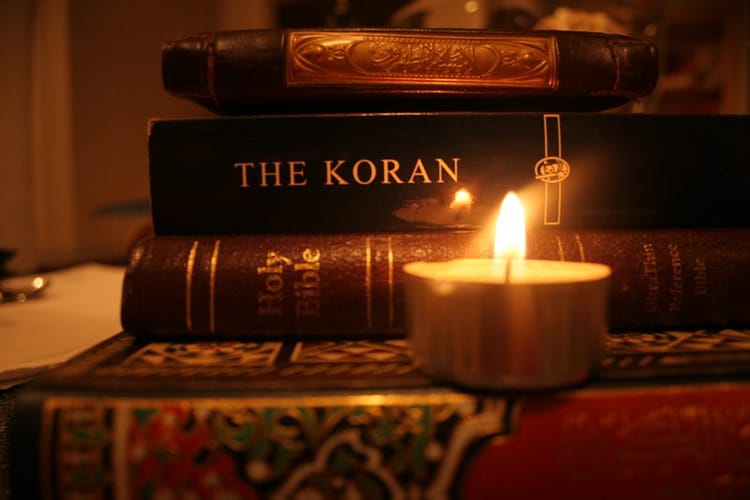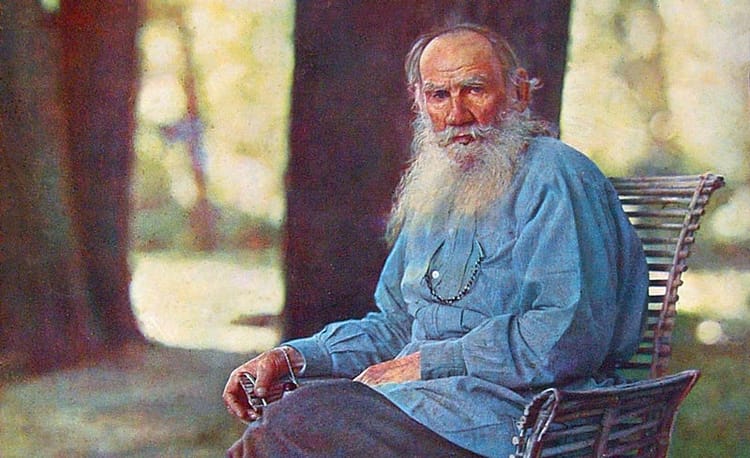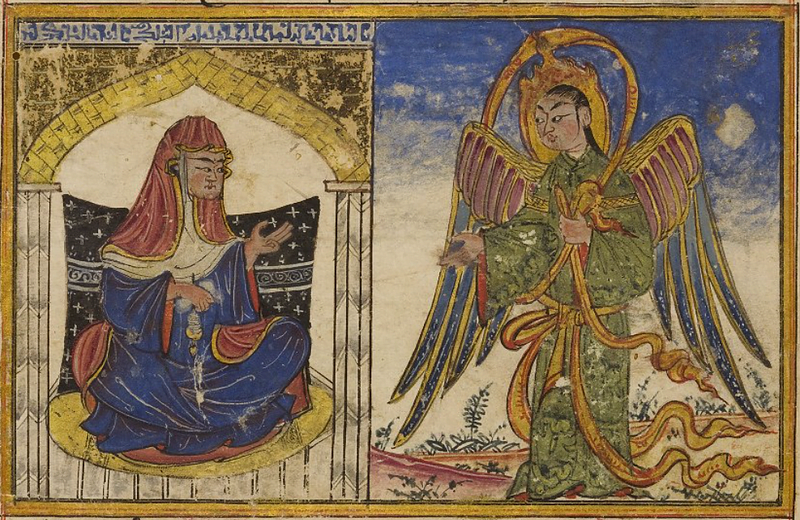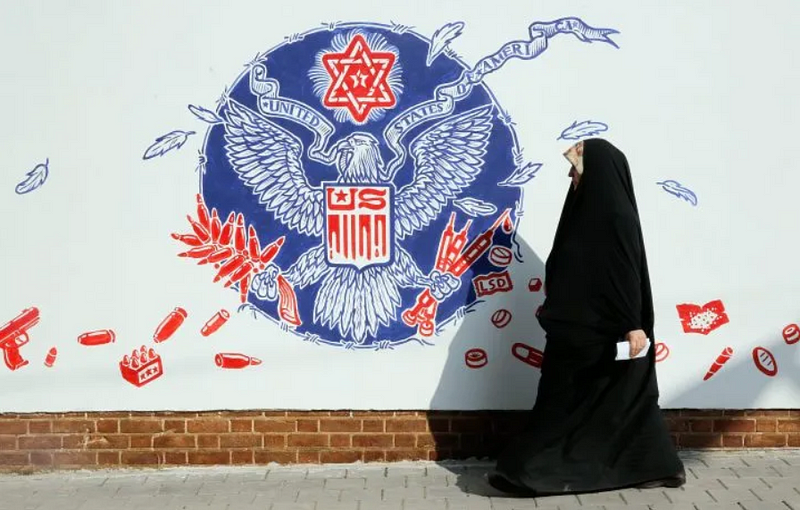Gratitude to God: A Thanksgiving Reflection
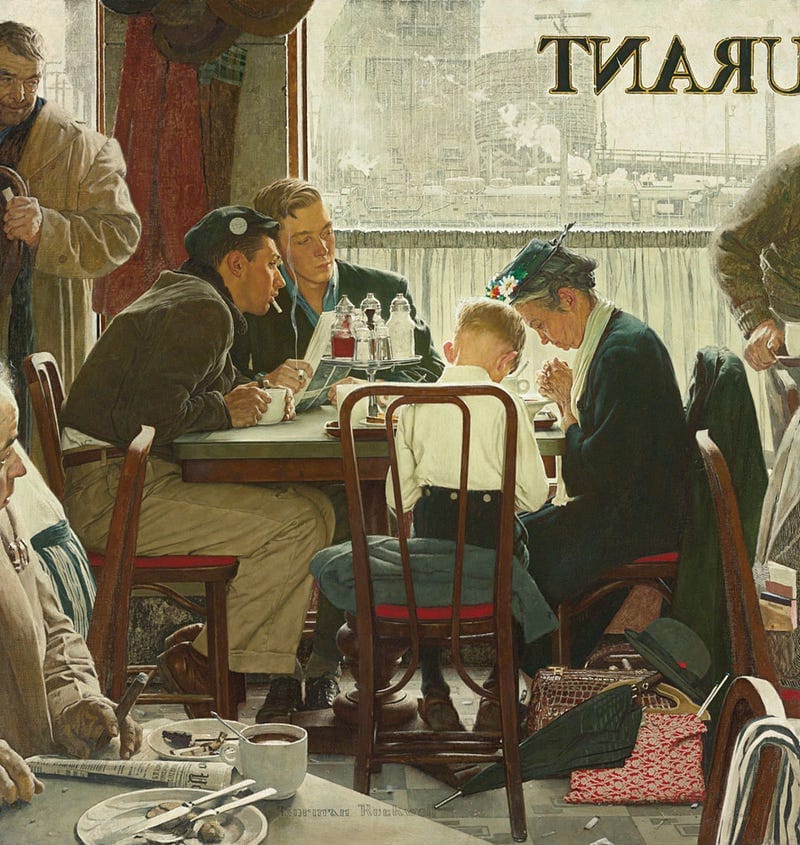
Thanksgiving Day is a distinctly American phenomenon. Though it is celebrated in Canada and other various countries, the holiday itself has its origins in America — both through its ‘First Thanksgiving’ mythology and through its official founding as a national day of commemoration by the United States’ first president. It was George Washington proclaimed the first nationwide thanksgiving celebration in America marking November 26, 1789, “as a day of public thanksgiving and prayer, to be observed by acknowledging with grateful hearts the many and signal favours of Almighty God”, and calling on Americans to “unite in most humbly offering our prayers and supplications to the great Lord and Ruler of Nations and beseech him to pardon our national and other transgressions.”
In my former monastery, we would often repeat a quote attributed to a saintly man of God, St. John Maximovich of San Francisco. He said (and I paraphrase): As monks — and as Russian Orthodox — we don’t celebrate American secular holidays, with the exception of two: Mother’s Day (because we must all love our mothers), and Thanksgiving. And we celebrate Thanksgiving, because we must always be a people who give thanks to God.
The same is generally true in Islam. Thanksgiving is a secular holiday, certainly, and as thus, Islam does not recognize it. However, many American Muslims observe it in one way or another. After all, how many secular holidays are founded specifically and purely on the idea of prayer and giving thanks to God?
It is true that the origins of the holiday in regards to the Puritans and the Native Americans in America is… complicated. (To say the least.) When we get past the cozy mythology of ‘the First Thanksgiving’, we find a history in which there is much to repent of. All of this is true, and it is right to acknowledge it. I remember being a young, neophyte Leftist in college with a copy of Howard Zinn’s A People’s History of the United States and the writings of Noam Chomsky under my arms going to Thanksgiving in 2001 and angrily regaling my poor family about tales of massacre and colonialism and atrocities and war (over more than a few glasses of wine, I might add). I could tell that my aunt was really affected and took to heart everything that I said… because the following year, she was reluctant to invite me back!
These are legitimate discussions, however. And they seem even more pertinent this year with everything going on in Gaza. I’ve heard the question being openly asked more than once in the past week: ‘How can we celebrate and feast when there is a genocide happening right now in Gaza?’ Again… a legitimate question. Should not fasting and repentance, perhaps, seem more in order? And yet… while I understand this sentiment, I don’t think it’s the right approach.
In my own reflection on ‘thanksgiving’ and the current events over the past week, my thoughts keep returning to a video that I saw on Youtube.

In the video, a Palestinian boy is collecting rainwater, and he joyfully exclaims to the camera: “Thanks be to God! Allah knew that we were suffering, and so he sent us rainwater!… Fresh water!” For context, the Israelis had recently cut off all water and electricity to Gaza, and so the millions of inhabitants of Gaza had no water to drink. And this boy, with such pure and innocent eyes, with a bright and cheerful face, expresses pure joy and gratitude towards God for something so simple as sending rainwater to them to ease their suffering.
This boy left a deep impression on me, and I watched the video over and over again. Who really knows how much suffering this boy has been through? How much horror has he witnessed over the past weeks? Over a lifetime? And here — with such obvious purity of heart — he is giving thanks to God for sending them… rain. Just rain.
It’s one of the most beautiful things that I’ve ever witnessed. And to quote Dostoyevsky: “The world will be saved by beauty.”
Such beauty invites a response. It invites us to action. "Beauty awakens the soul to act,” said Dante Alighieri. We cannot be complacent in the face of such beauty. We must act. And here, I would say we must act on two levels. First, the outward, political level. This is the most basic. For example, where is this boy with the rainwater now? Is he safe? Is he okay? It is good to be inspired by his words and his example, but this inspiration must be a catalyst to action. To right wrongs. To correct injustices. To work towards ending human suffering and oppression. To look after our brother and our neighbor. To show love to those around us. To offer a cup of water to the thirsty. A meal to the hungry. Shelter to the homeless. Hope to the hopeless. In this way, we can be a source of beauty and hope and light in the darkness that we see encroaching across our world. “I come not to be served, but to serve.” Often, through our actions, people can see God — and believe. (And of course, the inverse can be true, as well.) It is a call to Gandhi’s famous aphorism: “Be the change you wish to see in the world.”
There is a second, more inward level of response, however. Witnessing the pure gratitude towards God of this Palestinian boy awakened something within me. It was the realization of my own ingratitude. How much have I been given? How much do I have? How much in my life should I be grateful for… and yet I am not. How much do I complain over the slightest setbacks? How much in my life do I take for granted? How often, really, do I honestly remember God and give thanks to Him for all that I have from day to day? Not simply with lip service, but with an absolute purity of heart as witnessed in this Palestinian boy giving thanks for the rain?
This is the beauty that calls us to repentance. And repentance is not merely feeling sorry for something. It is a change of heart — a ‘turning around’ and turning back towards God. A re-orientation. Perhaps we have lots of food and a good life in America — we have all of these things — but there is, perhaps, still something that we lack that this Palestinian boy has in abundance: gratitude and thankfulness towards God. For if we truly saw with spiritual eyes — with the eyes of the heart — we would see that all things are a blessing from God. Nothing happens outside of His providence. And in all things we must give thanks.
Given all of this, I think George Washington’s words when he officially proclaimed Thanksgiving Day in America are prescient. In establishing the national day of feasting and prayer, Washington called us not only to give thanks for what we have, but he also called Americans to “unite in most humbly offering our prayers and supplications to the great Lord and Ruler of Nations and beseech him to pardon our national and other transgressions.” Since it’s founding, therefore, Thanksgiving Day has been a day of repentance as well — both for our personal transgressions as well as those of our Nation, whether they be in the past or the present. This being so, it is not in any sense out of place to call to mind the sins of the past so that they will not be repeated again in the present nor in the future. Certainly the atrocities in Gaza happening right now call us to reflect this Thanksgiving Day — especially given the United States’ involvement and complacency.
That said, we cannot begin to change the world until we change our own heart. A repentance. For indeed, there is a crisis in the world right now — and this is the crisis of the growing lack of gratitude. I feel that this lack of gratitude — towards our parents, our teachers, our ancestors, our neighbors, our family, etc. — grows directly out of a disbelief (functionally or otherwise) in God. A growing lack of trust in God. For all of the comforts and luxuries that we enjoy in America, our hearts grow cold in our love towards God.
We can only see the world correctly through the eyes of faith. And this Thanksgiving Day, I can only pray to God: “O Lord, give me the faith of this boy in Gaza. Instill in my heart such pure gratitude for all that I have — and all that I lack. And glory to God for all things.”
This is, officially, my first Thanksgiving Day as a Muslim. And again, though the day is not officially recognized by Islam, giving thanks to God certainly is. It’s not only an obligation, but it is our whole way of life.
Looking back on the past year, I wouldn’t have imagined, one year ago, all that I have seen and experienced over these past months — not only in my personal life, but in Gaza and in the world at large. Both the blessings and the good fortunes, as well as the trials and tribulations — all of it, if seen truly by faith, are according to the will and wisdom of God. Even the hardships are blessings in disguise.
So, for this reason, I give thanks. And I wish all of you a blessed Thanksgiving Day. May the blessings of God be with you through all the days to come.
